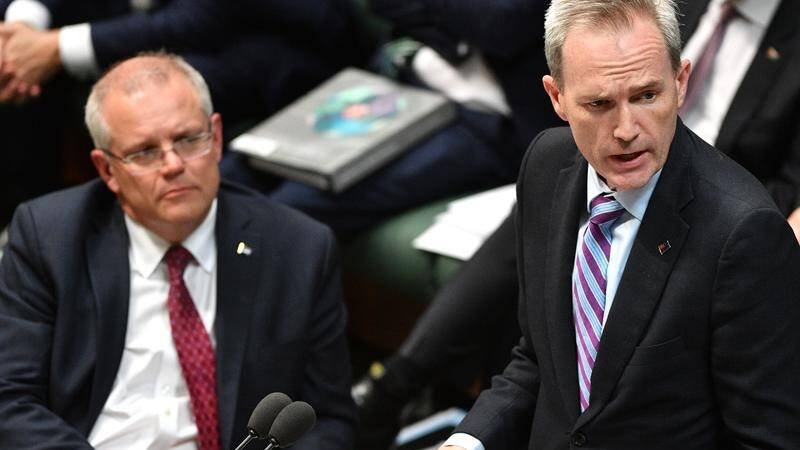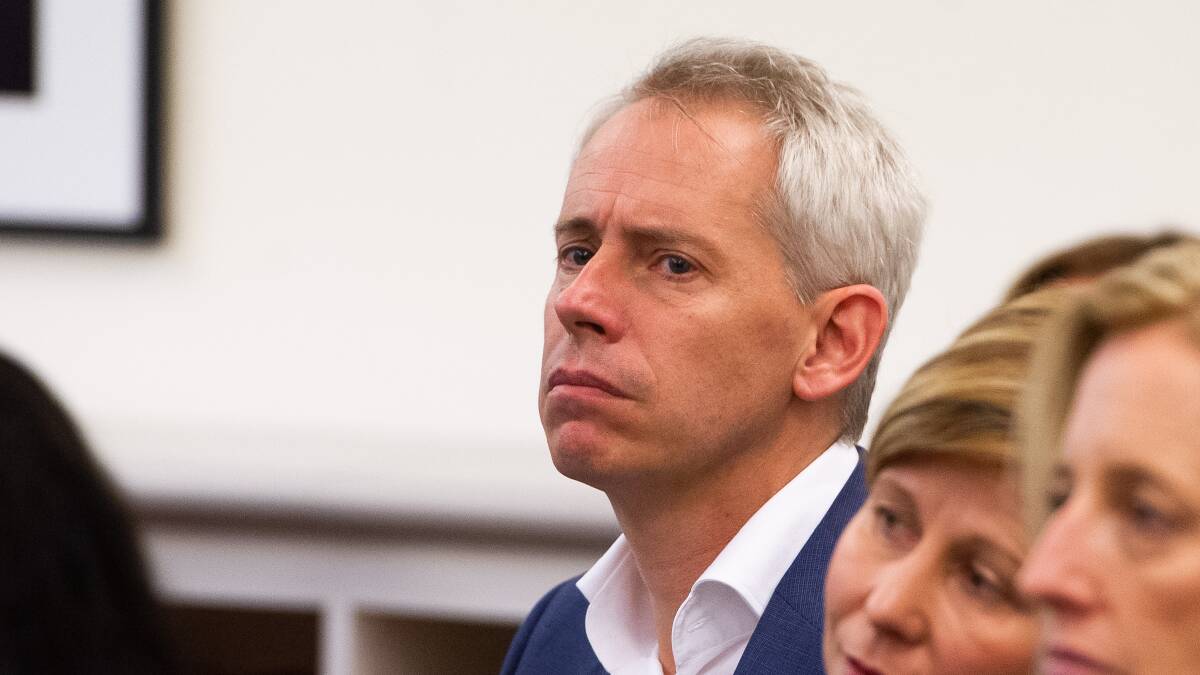The company leading a consortium bidding for a lucrative $1 billion visa processing contract and headed by a close associate of Prime Minister Scott Morrison, donated more than $130,000 to the Liberal Party in the lead-up to the last federal election.
Subscribe now for unlimited access.
$0/
(min cost $0)
or signup to continue reading

Political donation records released by the Australian Electoral Commission show that Pacific Blue Capital, led by former New South Wales Liberal Party deputy state director Scott Briggs, has contributed $133,000 to the Liberal Party since late 2017, including 14 donations worth $90,000 between November 2018 and February last year.
Mr Briggs has long standing personal and professional relationships with both Mr Morrison and Immigration Minister David Coleman, and both have recused themselves from expenditure review committee and cabinet discussions on the tender process.
His private investment firm is part of the Australian Visa Processing consortium that is vying for the contract to build and operate a single online platform to receive, process and issue visas for more than nine million applicants a year.
The consortium, which also includes PricewaterhouseCoppers, National Australia Bank, Qantas Ventures and Ellerston Capital, is one of two competing for the work. The rival bid is from Australia Post and Accenture.
The tender, which is part of a broader Department of Home Affairs initiative to upgrade and simplify the visa IT system, has become mired in controversy amid concerns that outsourcing visa processing will put the security of sensitive personal and national data at risk and potentially cost hundreds of jobs.
Labor's assistant immigration spokesman Andrew Giles said the donations from Mr Briggs' firm were "a terrible look".
"He and his business have the right to make donations to the party they support, but making a $90,000 donation to the party in government when you are bidding for a big contract is a terrible look," Mr Giles said.
The donations have come to light as the government continued to experience turbulence from the sports rorts affair which on Sunday claimed the scalp of former Agriculture Minister Bridget McKenzie.
Senator McKenzie was forced to quit the frontbench and National Party deputy leadership after being found to have breached the ministerial code of conduct by failing to declare her membership of a gun club that received a $36,000 grant from the Community Sport Infrastructure Program she administered as sport minister in the last parliament.

Her departure triggered a tussle in the National Party in which Barnaby Joyce launched a failed bid to return as leader two years after being forced to quit amid revelations of an affair with a former staffer.
Mr Giles said public trust in the political system was already at "an all-time low" even before the donations were revealed.
Under the government's outsourcing plan, the cost of the contract would be offset by allowing the provider to collect fees and taxes on the Commonwealth's behalf.
The government had hoped to proceed without needing Parliament's approval.
But in an incoming government brief released under Freedom of Information laws, Home Affairs advised that the plan would "likely require new supporting legislation".
This a problem for the government, which is facing a road block in the upper house where cross bench senators Jacqui Lambie, Pauline Hanson, Stirling Griff and Rex Patrick have indicated they will back Labor and the Greens in opposing the privatisation of visa processing because of concerns about data security, employment and potentially allowing private interests to control part of the immigration system.
In a statement to the Canberra Times, Senator Hanson said she was "dead against any private company taking over visa processing, which is a key element of Australia's border security and should remain the responsibility of the Federal Government".
The Community and Public Sector Union has been lobbying hard against the move.
National secretary Melissa Donnelly said union members and delegates had held more than 60 meetings with members and senators over the issue and vowed to keep up the pressure until it was killed off.
READ MORE:
But at a Senate committee hearing last year, Home Affairs deputy secretary Malisa Golightly defended the new system, which would provide users with a "seamless digital experience".
Ms Golightly said her department had already spent more than $80 million on design and procurement and would not surrender control of visa decision making under the new arrangement.
"The department will maintain full responsibility and accountability for policy, security, risk assessment and visa decision making," she said.
"As set out in the tender documents and our submission, refusal decisions or decisions that take away a right or entitlement will only be made by departmental officials. They will not be made by the computer."
Her assurances have failed to reassure former Immigration Department deputy secretary Abul Rizvi, who told a Senate inquiry of his alarm over the planned outsourcing.
"The risks associated with visa privatisation, once Home Affairs has become totally dependent on a monopoly owner of the visa processing IT platform, are extensive," Mr Rizvi warned.
Among his concerns were data protection, likely delays and cost blowouts and the potential for private operators to try and monetise sensitive data.
"Australia's citizenship and visa databases hold some of the most extensive and detailed data on Australia citizens, family and humanitarian sponsors, education providers, overseas students, tourists and companies who sponsor overseas workers," he said. "This database would be incredibly valuable."


